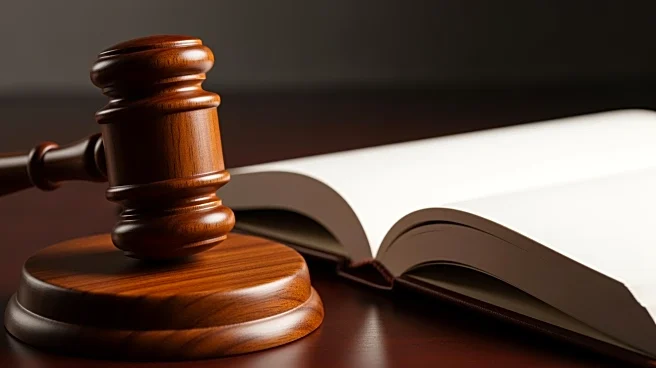What's Happening?
Former FBI Director James Comey has filed a motion to dismiss charges against him, arguing that the prosecution was 'reckless and ill-conceived.' Comey is accused of lying to Congress and obstructing justice,
with the indictment issued on September 25. In a 29-page filing in Alexandria, Virginia, Comey claims that interim US Attorney Lindsey Halligan violated grand jury rules and the Fifth Amendment. The defense argues that the grand jury did not approve the indictment, as at least 12 jurors did not concur with the two-count indictment. Prosecutors maintain that grand jury procedures were followed correctly, providing a transcript to support their claim. Comey is scheduled to go to trial on January 5, 2026, facing up to five years in prison if convicted.
Why It's Important?
The case against James Comey is significant as it involves allegations of misconduct by a former high-ranking official, potentially impacting public trust in government institutions. The legal proceedings highlight the complexities of grand jury processes and the importance of adhering to constitutional protections. If Comey's charges are dismissed, it could set a precedent for how similar cases are handled, influencing future prosecutions of government officials. The outcome may also affect Comey's reputation and career, as well as public perception of the justice system's integrity.
What's Next?
Comey's trial is set for January 5, 2026, where the court will determine the validity of the charges. The defense's motion to dismiss will be reviewed, potentially leading to further legal arguments about grand jury procedures and constitutional rights. If the charges are upheld, Comey will face trial, which could result in a conviction and prison sentence. The case may prompt discussions among legal experts and policymakers about the need for reforms in grand jury processes and prosecutorial conduct.










